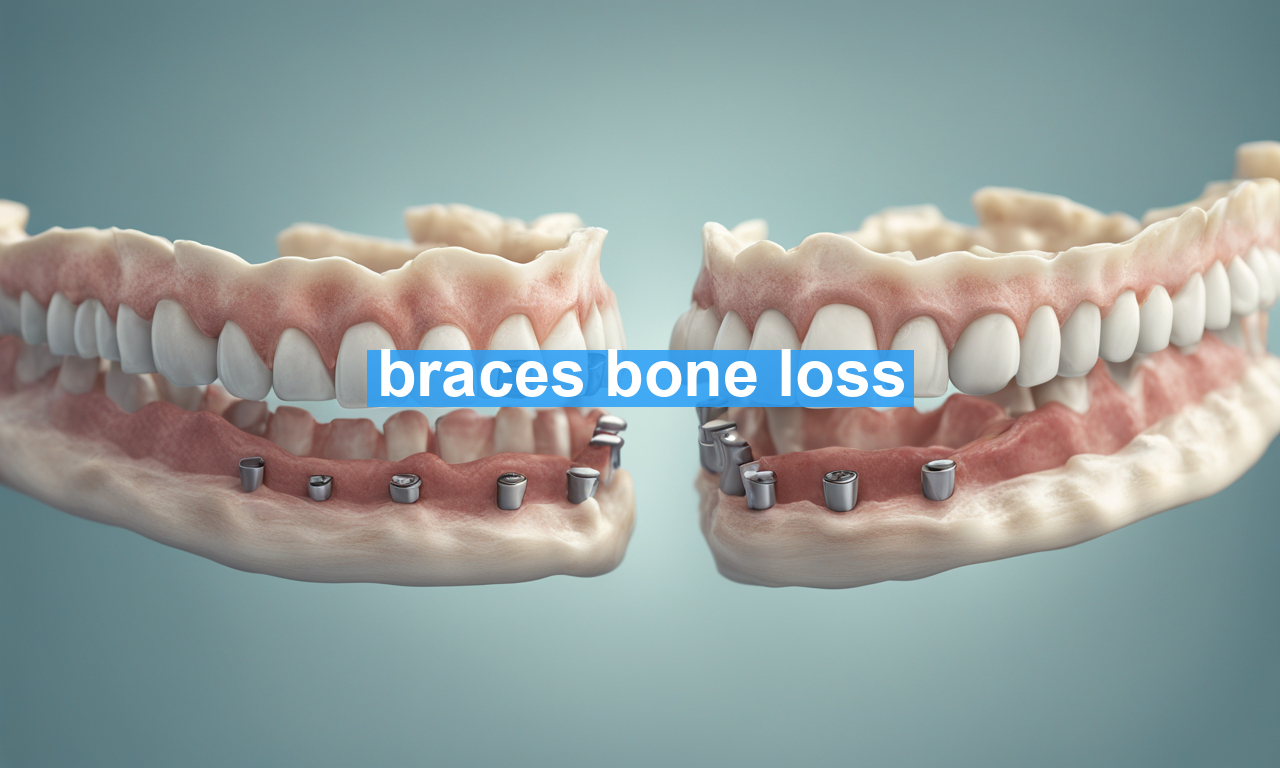Imagine confidently flashing a perfect smile, only to find out that the braces designed to align your teeth might lead to unexpected complications like bone loss. Navigating this paradox can be daunting, yet understanding the correlation between braces and bone loss can open the door to informed preventative measures. This blog will explore the nuances of how orthodontic treatments can impact your bone health, providing you with practical insights to maintain that stunning smile without compromising your bone structure.
Understanding the Connection Between Braces and Bone Loss
Braces work by exerting pressure on your teeth to guide them into better alignment. While this pressure is instrumental in achieving straighter teeth, it can, in some cases, negatively affect the surrounding bone and gum health.
The Mechanism of Bone Remodeling
When you wear braces, the bones around your teeth undergo constant remodeling. Orthodontic pressure stimulates cells called osteoclasts and osteoblasts, responsible for bone resorption and formation, respectively. Ideally, these processes balance each other out.
However, excess pressure or prolonged treatment can disrupt this balance, and lead to bone loss. It’s essential to understand these risks to mitigate potential damage effectively.
Signs and Symptoms of Bone Loss
Being attentive to your oral health while you have braces is crucial. Some signs that might indicate bone loss include:
- Increased tooth mobility
- Gaps forming between teeth
- Receding gums
- Persistent discomfort around teeth
If you notice any of these signs, it’s imperative to consult your orthodontist promptly.
Preventative Measures to Mitigate Bone Loss
While the prospect of bone loss can be unnerving, several strategies can help minimize its occurrence.
Adhere to Your Orthodontist’s Guidelines
Your orthodontist provides guidelines tailored to your specific needs. This includes:
- Regular adjustment appointments
- Specific cleaning procedures
- Dietary recommendations
Consistent adherence to these guidelines ensures optimal treatment progression and minimizes potential bone disturbances.
Maintain Excellent Oral Hygiene
Ensuring impeccable oral hygiene is vital when you have braces. Plaque buildup around orthodontic appliances can exacerbate inflammation and gum disease, accelerating bone loss. The following practices are recommended:
- Brushing teeth at least twice a day with fluoride toothpaste
- Utilizing an interdental brush to clean between brackets and under wires
- Flossing with a floss threader designed for braces
- Using an antimicrobial mouthwash
Dietary Considerations for Healthy Bones
Your diet plays a pivotal role in maintaining bone health during orthodontic treatment.
Calcium and Vitamin D Intake
Both Calcium and Vitamin D are essential for bone health. Ensure your diet includes:
- Dairy products – milk, cheese, and yogurt
- Leafy green vegetables – kale and spinach
- Fortified foods – cereals and orange juice
- Fatty fish – salmon and mackerel
Consider discussing supplements with your healthcare provider if you’re unable to meet dietary recommendations.
Avoid Sugary and Acidic Foods
Foods high in sugar and acid can worsen plaque formation and lead to enamel erosion. Limit or avoid:
- Candy and sweets
- Soft drinks and fruit juices
- Highly processed snacks
Regular Dental Checkups Are Crucial
During orthodontic treatment, regular dental checkups are indispensable. Your dentist can monitor for early signs of bone loss and other complications, providing timely intervention.
Professional Cleanings
Regular professional cleanings help remove plaque and tartar that may not be effectively eliminated with routine brushing and flossing. This fosters healthier gums and bones.
Monitoring Progress
Your orthodontist and dentist will regularly assess bone integrity and tooth health to ensure your treatment plan is progressing as expected. Adjustments may be made to mitigate any signs of bone loss.
Embrace the Journey to a Healthier Smile
While the possibility of bone loss during orthodontic treatment is a valid concern, it doesn’t have to overshadow your journey to a beautiful smile. By adhering to your orthodontist’s advice, maintaining exceptional oral hygiene, eating a balanced diet, and keeping regular dental appointments, you can navigate this process smoothly.
Remember, an informed approach to any health treatment is always your best ally. Embrace your journey to a perfect smile with confidence, armed with knowledge and proactivity. For more information, check out this comprehensive guide on how braces work and their potential impact on dental health at the American Association of Orthodontists.

